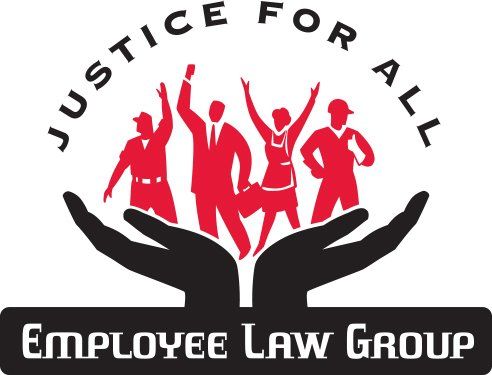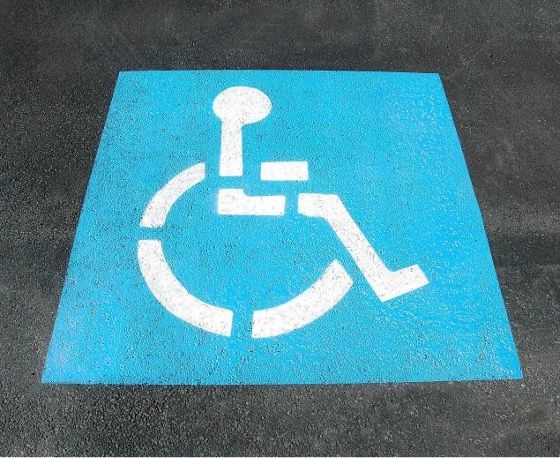- WHO WE HELP
- ABOUT
- GET STARTED
-
CASES WE TAKE
- UNPAID WAGES
- CLASS ACTION SUITS
- FAMILY & MEDICAL LEAVE
- PREGNANCY DISABILITY LEAVE
- HARASSMENT
- NEGOTIATION OF SEVERANCE
- EMPLOYMENT CONTRACT NEGOTIATION
- WORKPLACE CLOSURES
- DEFAMATION OF CHARACTER
- BAD REFERENCES
- EXPENSE REIMBURSEMENT
- ILLEGAL DEDUCTIONS FROM WAGES
- MINIMUM WAGE VIOLATIONS
- UNPAID OVERTIME
- UNPAID COMMISSIONS
- WRONGFUL TERMINATION
- SEXUAL HARASSMENT
- LOS ANGELES EMPLOYMENT LAWYER
- LOS ANGELES DISCRIMINATION LAWYER
- WHISTLEBLOWER RETALIATION
- FAQs
- BLOG
- CONTACT
Pregnancy Discrimination
In spite of the millions of pregnant women and new moms in the workforce today, pregnancy discrimination is, unfortunately, still a problem throughout the US. In California, however, women are lucky because there are laws that forbid pregnancy discrimination.
Understanding these laws is essential if you are pregnant, planning to become pregnant, or have recently given birth. Here’s what the law says about pregnancy discrimination and why working with an employment attorney may be a solution for you if you aren't enjoying all your rights at work.
What Is Pregnancy Discrimination?
Pregnancy discrimination is being treated less favorably than other employees at your workplace because:
- You are currently pregnant.
- You are thinking about becoming pregnant.
- Your employer is worried about you becoming pregnant.
- You have recently given birth.
- You have recently suffered a miscarriage.
The unfavorable treatment has to result in harm to you, whether physically, emotionally or financially. It might also interfere with your ability to properly perform your job.
In California, pregnancy discrimination can be cause for a claim if your employer (or a prospective employer) has five or more employees. Employees include unpaid interns. Continue reading to learn more about discrimination laws specific to California.
What Are Some Examples of Pregnancy Discrimination?
Pregnancy discrimination can take many forms. Some common examples include:
- Being passed over for a promotion or desirable assignment
- Being demoted
- Receiving less pay or having your hours cut
- Being laid off or fired (especially just before parental leave was due to commence)
- Not being allowed to come back to work after maternity leave
- Not receiving training or education like other employees
- Not being hired for a job for which you are qualified
- Denial of health insurance, benefits, commission or bonuses
- Not being allowed time off for medical appointments
- Requiring you to perform work that is too strenuous and might put your pregnancy in danger in order to force you to quit
- Harassment (by management or fellow employees – also a form of sex discrimination)
- Being refused your rightful leave of absence
- Not making reasonable workplace accommodations for your health or for a pregnancy-related disability
Reasonable workplace accommodations include things like allowing you to sit at work, modifying certain arduous workplace duties, or allowing you to use the bathroom more frequently as needed. They also encompass providing sufficient break time and a private room nearby to express breast milk as per the Labor Code.
A period of leave may be justified by many circumstances, including:
- Morning sickness (hyperemesis gravidarum)
- High blood pressure (hypertension)
- Preeclampsia
- Gestational diabetes
- A medical condition or complication that requires bed rest
- Childbirth recovery
- Postpartum depression
- Miscarriage
It is permissible for your employer to ask for a doctor’s note regarding the issues listed above, but they must participate in a process with you to develop a plan to accommodate your pregnancy and any health concerns.
Are There Laws to Protect Pregnant Workers and New Mothers in California?
There are multiple federal and state laws that prohibit pregnancy discrimination. Most often, the California Fair Employment and Housing Act or FEHA is cited when employees allege pregnancy discrimination against an employer. However the following other laws may also apply:
- The federal Family and Medical Leave Act - FMLA allows for up to 12 weeks of unpaid leave for pregnancy-related disabilities
- The California Family Rights Act - CFRA gives you up to 12 weeks leave for baby bonding
- California’s Pregnancy and Disability Leave Law - PDL permits up to 4 months of unpaid leave for pregnancy-related disabilities
- The California State Disability Insurance program - SDI requires up to 4 weeks of paid leave for pregnancy-related disabilities and 8 weeks of paid leave for baby bonding
What Should You Do If You Have Been a Victim of Pregnancy Discrimination?
Occasionally, employers are unwitting perpetrators of pregnancy discrimination. Sometimes talking with your boss or HR and reminding them of your rights can set the matter straight. If not, your next step is to write a pregnancy discrimination demand letter. This type of letter demands that your employer stop all discriminatory behavior immediately and states that if they comply, you will not report them or pursue a lawsuit.
If the pregnancy discrimination continues, you have the right to contact the appropriate authorities and file an official complaint. Depending on which law is being violated, your complaint will go to either the California Civil Rights Department, which is formerly known as the Department of Fair Employment and Housing or DFEH, or the US Equal Opportunity Employment Commission or EEOC.
The government agency will then investigate the matter. They can choose to take action against your employer on your behalf or do nothing, in which case you can file a civil lawsuit. In most instances, an official complaint and investigation are necessary before you can take the case to court.
How Do You Prove Pregnancy Discrimination?
Pregnancy discrimination can be difficult to prove, depending on the evidence available. Therefore, it’s important to document as much as you can, as this can help your case. Emails, text messages, and memos can serve as proof of discrimination.
For example, your boss might have emailed you saying your hours are being cut because of your pregnancy. Another scenario would be receiving a letter saying you weren’t hired for a job because you were pregnant and the company was concerned you would quit after your baby was born.
Eyewitnesses are also important. Your co-workers might come forward for you saying you have been treated unfairly, or they might be witnesses to discriminatory behavior, like your having been left out of important training sessions due to your physical condition.
How Can an Employment Attorney Help with Pregnancy Discrimination?
Usually, once you get to the point where a pregnancy discrimination demand letter is required, the help of an employment lawyer is necessary. You want to make sure the letter is written properly, and you want to cite all the legal reasons why you are sending the letter. An attorney can make sure you cover all that and may even help you discover discriminatory acts you weren’t aware of.
Likewise, should you wish to file an official complaint, it’s best to have an attorney help you with the required paperwork and decide which agency should investigate based on the laws being broken. If the agency opts not to pursue action, your attorney can then assist you if you want to file a lawsuit. They can represent you in court or in some instances, help you reach a private settlement with your employer. An attorney can help you gather proof of discrimination to make your case stronger for the best possible outcome.
Employee Law Group is experienced with cases of pregnancy discrimination and can help you if you're in the Los Angeles area, particularly with the confusing legal issues and red tape surrounding demand letters, official complaints and lawsuits. We have the resources to work on your case, so you can focus on your life and your prenatal or postpartum health.
It doesn’t cost anything to see if you have a pregnancy discrimination case because our first consultation is free. To schedule an appointment, call Employee Law Group today at 310-407-7358, or reach out online to tell us more about your situation.









EMPLOYEE LAW GROUP | JUSTICE FOR ALL
21250 Hawthorne Blvd. Suite 500, Torrance CA, 90503
500 Capitol Mall, Suite 2350, Sacramento, CA, 95814

